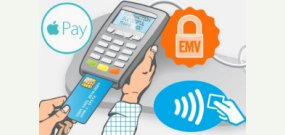Most software companies try to sell what they want to offer the customer, rather than what the customer wants to buy. The customer must feel comfortable with the people that will be supporting them, the software has the functionality that they are looking for and the price is in their budget range. We must build software that the customer wants to buy rather than having a sales staff that pushes software they must sell. Small software companies understand this philosophy and always keep the customers wishes in mind. Understanding the customer’s needs, why these needs are essential and how can we best address them is our primary function.
To best serve the customer, we must offer good value, affordable costs and limited risks. You as the buyer must avoid the mistake of buying software from Microsoft, QuickBooks and other large companies, just because they are big. If you are try to have an “I care about you†relationship with the big boys. I don’t believe it’s going to happen!




